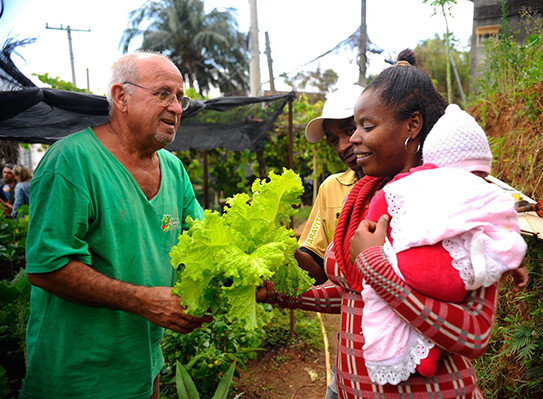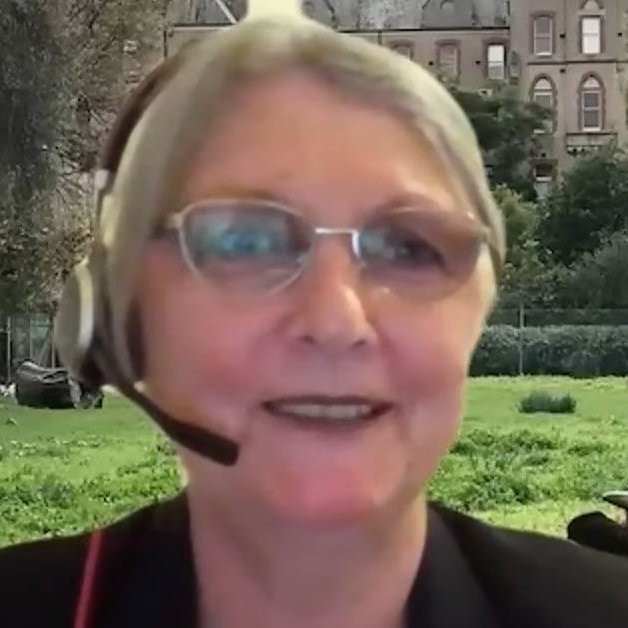
Rio de Janeiro Preifetura
Actions for bringing nature back into the metropolitan spaces
It is clear that the climate and biodiversity crisis is now a reality, and currently one of the main challenges facing the planet. “Nature and biodiversity provide the foundation for human existence and right now human life is under threat due to climate change” stated Amanda Stone, Councillor at the City of Yarra and Chair of ICLEI Oceania’s Regional Executive Committee, representative of Oceania at the ICLEI Global Executive Committee and special advisor to ICLEI on Nature, Biodiversity and Ecosystem Restoration. Cities and metropolitan areas and their governments are usually on the front line when it comes to facing the consequences of the climate crisis. That’s why, by implementing environmental policies at a local level, they can also be agents of change and contribute to finding solutions to this global challenge.
On 21 October, Metropolis organised an online exchange session with support from the Barcelona Metropolitan Area (AMB) and collaboration from ICLEI. The main aim of this event was to promote the launch a new metropolitan comparative study, titled “Nature in and across cities: metropolitan approaches for biodiversity conservation”. The session was also part of the Cities with Nature webinar series, an initiative started by ICLEI, The Nature Conservancy, and the International Union for the Conservation of Nature. The event was also held within the framework of COP-15, also known as the United Nations Biodiversity Conference 2020.
The session was moderated by Lia Brum, Research and Policy Officer at the Metropolis Secretariat General, and discussed the different policy mechanisms that can be implemented to reduce biodiversity loss and increase nature in urban areas. The discussion was complemented by a showcase of different initiatives implemented by several Metropolis members that aim to bring nature back into the city.
Ariana Dickey, Research Fellow in Urban Sustainability and co-author of the report, presented the highlights of this new comparative study. The report proposes actions for conserving urban biodiversity and is divided into five different chapters, each of them structured in the three categories proposed by the Intergovernmental Science-Policy Platform on Biodiversity and Ecosystem Services (IPBES): nature for nature, nature for society and nature for culture. The different topics addressed are urban nature, human, health and well-being, climate change and urban resilience, food security and diverse urban forms. For every chapter there is also a study case that showcases the different policies urban governments have adopted to reintroduce nature into their cities.

After this, Amanda Stone gave a brief presentation on the importance of biodiversity in cities. Human existence is closely linked to biodiversity, it is the foundation of life and the basis of everything humans need to survive. She also presented COP-15 and the new global biodiversity framework that is being negotiated, as well as the Edinburgh Declaration, which aims to represent the views of subnational and local governments on the post-2020 Global Biodiversity Framework.

“Almost every resource that humankind uses on a day-to-day basis relies directly or indirectly on nature.” Amanda Stone
“Cities and subnational governments are on the frontline of these crises, and they are ready and committed to take an active role on the post-2020 Global Biodiversity Framework” Amanda Stone
To conclude the session, selected Metropolis members presented the policies they are implementing at a local level to help improve and maintain biodiversity in urban areas.
Sanu Maiya Maharjan, Assistant Director in the Department of Environment and Agriculture, Kathmandu Metropolitan City, gave a presentation on the Rooftop Farming initiative. This project aims to transform the city rooftops into green spaces, which will contribute to better waste management, combat water scarcity and provide food security.
Débora de Barros, Undersecretary of Environment of the Rio de Janeiro Municipality, showcased the Hortas Cariocas project. The main objective of these urban gardens is to provide ecological value while also enabling access to healthy food and providing employment opportunities to residents at risk of exclusion.
The session also heard from Sabelo B Nkosi, Acting Senior Manager: Biodiversity Planning, Environmental Planning and Climate Protection Department, eThekwini Municipality (Durban), who presented how the Durban Metropolitan Open Space System interconnects private, public and traditional authority owned areas to protect the biodiversity that makes up the Maputaland-Pondoland-Albany hotspot, as well as its associated environmental services.
There was also a video from Mexico City that presented the new strategy for biodiversity conservation in the city. This strategy was created with the collaboration of academics, civil society and local and regional governments. It aims to offer guidance to both political and social actors in the process of awareness, preservation, restoration and sustainably in terms of Mexico City’s biocultural heritage.

Antoni Farrero, General Coordinator of the Technical Office of the Barcelona Metropolitan Area (AMB), spoke to emphasise the role of technology and urbanism in the evolution of nature. He stated that it is better to preserve nature, rather than trying to rebuild it later, even if there are occasions when occupying natural spaces is unavoidable. Farrero also highlighted the importance that the AMB gives to planning and how, thanks to this, this metropolitan area now counts on an outstanding network of green spaces.
Finally, Valerie Plante, Mayor of Montréal, highlighted the essential role of cities and local governments in preserving biodiversity via a pre-recorded video. She pointed out that cities are on the frontline when it comes to tackling climate change and health and environmental crises, which is why they are already implementing initiatives to protect their ecosystems and biodiversity.
Did you miss the event? Watch the full debate here.
Download the presentations here:

